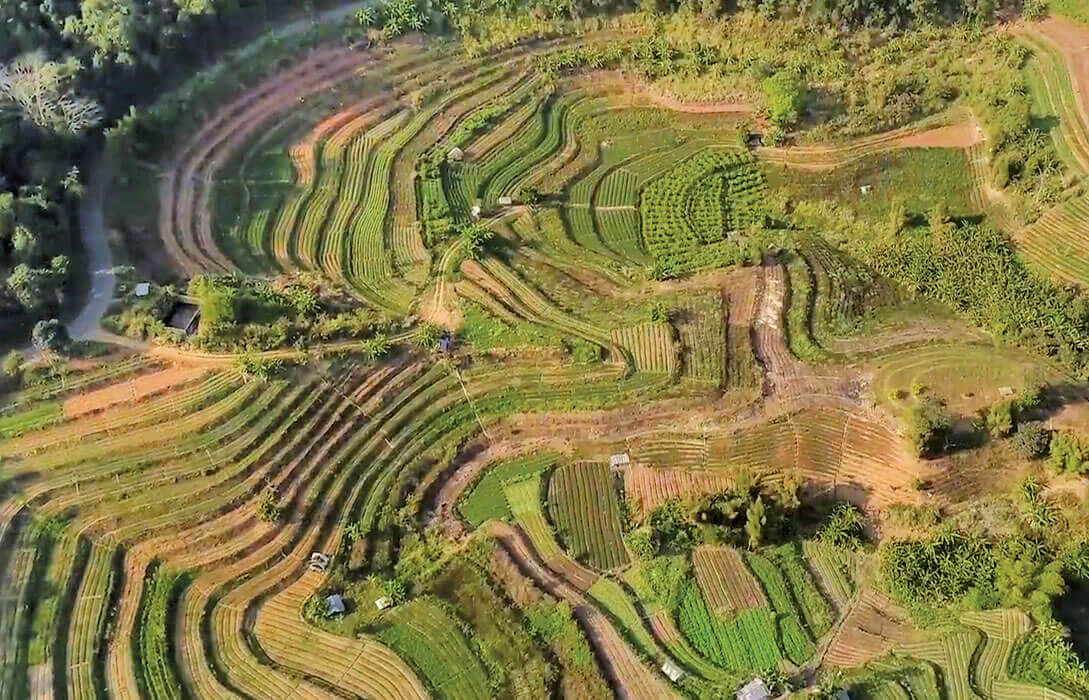Have you ever wondered how countries are able to tackle issues surrounding agriculture? How do they ensure food security for their people while also considering the impact on the environment? Well, Thailand has found an innovative solution through the Royal Project. This initiative has been revolutionizing the country’s agriculture practices for decades, and today, we’re going to take a closer look at what it’s all about.
The Royal Project is a sustainable agriculture initiative that was initiated by the late King Bhumibol Adulyadej in the late 1960s. Its aim was to address the issues of opium cultivation and deforestation in the country, while also promoting alternative livelihoods and providing a better quality of life for the communities involved. Over the years, the project has expanded to cover a wide range of activities, including research and development, education and training, and market development.
Through the Royal Project, Thailand has been able to transform its agriculture sector in several ways. Firstly, it has introduced alternative crops to replace opium poppy cultivation, such as fruits, vegetables, coffee, and tea. This not only helped improve the livelihoods of farmers but also contributed to the reduction of drug production in the country. Secondly, the project has prioritized organic and sustainable farming practices, which has had positive impacts on the environment, including reduced chemical usage and improved soil health.
In conclusion, the Royal Project of Thailand has been instrumental in revolutionizing the country’s agriculture practices. Through its emphasis on sustainable farming, alternative livelihoods, and environmental conservation, the project has not only improved the lives of farmers but also helped address social and environmental issues. In the upcoming article, we’ll dive deeper into the various aspects of the Royal Project and explore its impact in more detail. Stay tuned to learn more!
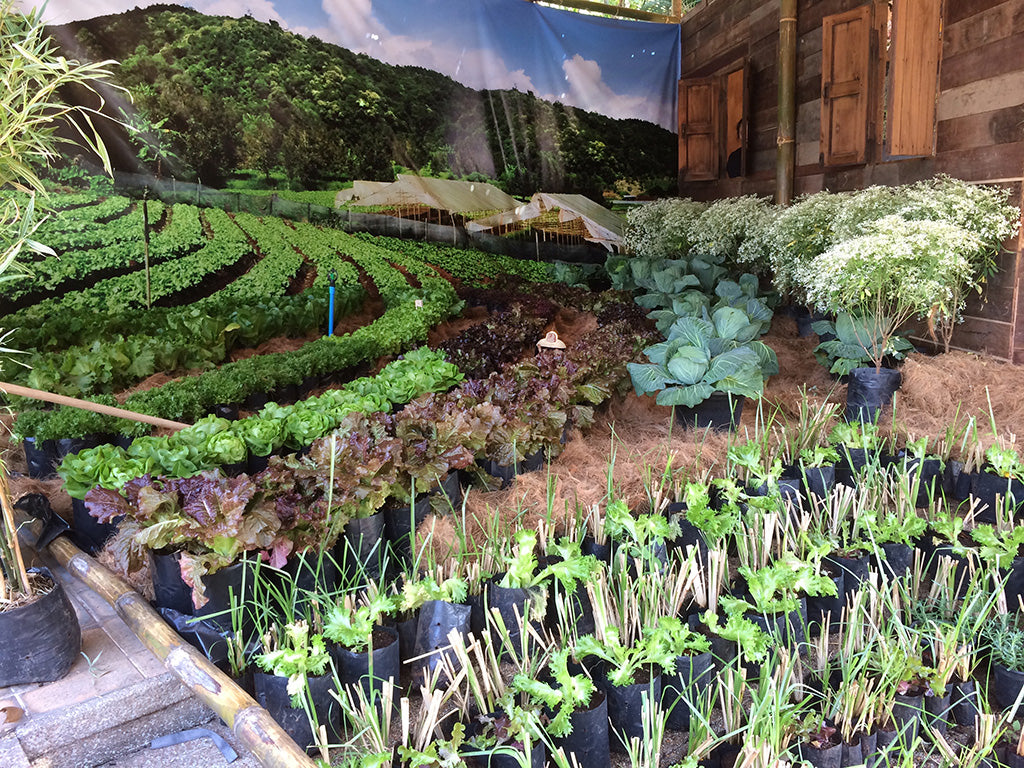
What is the Royal Project?
The Royal Project is a pioneering initiative in Thailand that aims to revolutionize the country’s agriculture sector. It was established with the support and guidance of his Majesty King Bhumibol Adulyadej, Rama IX, with the vision of addressing the agricultural challenges faced by rural communities and promoting sustainable farming practices. Since its inception, the Royal Project has made significant contributions to improving farmers’ livelihoods, preserving biodiversity, and enhancing food security in the country. This article explores the origin, objectives, and key initiatives of the Royal Project, as well as its achievements and future directions.
Origin and Background
The Royal Project was initiated in the late 1960s as a response to the illicit opium trade that plagued Thailand’s northern region. King Bhumibol Adulyadej recognized the need to provide alternative sustainable livelihoods for the local hilltribe communities, who were heavily dependent on opium cultivation. In collaboration with agricultural experts, the Royal Project introduced innovative farming techniques and crop diversification programs to encourage the transition from opium farming to sustainable agriculture.
Objective and Mission
The main objective of the Royal Project is to improve the lives of rural communities by promoting sustainable agricultural practices, addressing agricultural challenges, and fostering environmental conservation. The Royal Project aims to achieve this by engaging local farmers, providing them with training and education programs, and supporting them in adopting sustainable farming techniques. Its mission is to create a model for sustainable agriculture that can be replicated in other parts of the country and serve as an inspiration for farmers and policymakers alike.
Key Initiatives
The Royal Project focuses on four key areas: addressing agricultural challenges, promoting sustainable agricultural practices, crop diversification and research, and improving farmers’ livelihoods. Let’s delve into each of these initiatives.
Addressing Agricultural Challenges
Challenges Faced by Thai Agriculture
Thai agriculture faces several challenges, including limited access to markets, vulnerability to pests and diseases, water resource management issues, and soil degradation. These challenges often lead to low productivity and income for farmers, as well as food insecurity in rural communities.
Role of the Royal Project in Overcoming Challenges
The Royal Project plays a crucial role in overcoming these challenges by implementing various strategies and interventions. Through partnerships with research institutions and agricultural experts, the Royal Project develops and disseminates integrated pest management techniques for farmers. By reducing reliance on chemical pesticides, farmers can protect their crops from pests while minimizing negative environmental impacts.
The Royal Project also promotes organic farming techniques that utilize natural fertilizers and pest control methods. This not only improves the quality of agricultural produce but also reduces the harmful effects of chemical farming on human health and the environment.
Furthermore, the Royal Project spearheads water resource management initiatives, such as the construction of reservoirs and irrigation systems, to ensure efficient and sustainable water usage in agriculture. This helps farmers overcome water scarcity issues and enhances their ability to produce crops throughout the year.
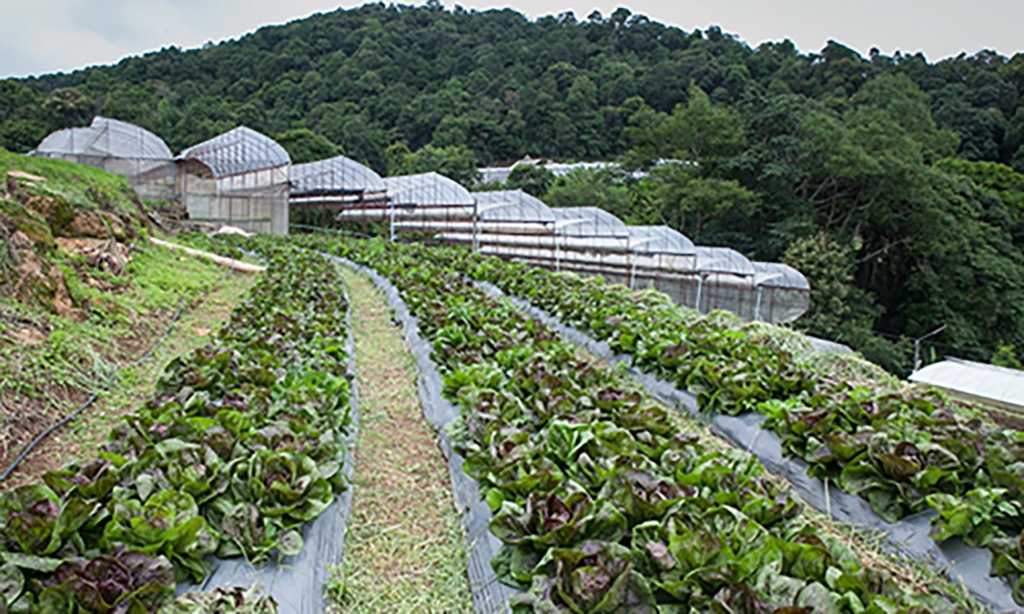
Sustainable Agricultural Practices
Integrated Pest Management
Integrated Pest Management (IPM) is a key approach championed by the Royal Project. IPM involves the use of natural predators, biopesticides, crop rotation, and other sustainable practices to manage pests effectively. By implementing IPM techniques, farmers can reduce their reliance on chemical pesticides, protect beneficial organisms, and minimize environmental contamination.
Organic Farming Techniques
Organic farming is another integral part of the Royal Project’s sustainable agriculture practices. Through training and education programs, farmers are encouraged to adopt organic farming methods that focus on the use of natural fertilizers, composting, and crop rotation. This promotes soil health, biodiversity, and long-term sustainability in agricultural production.
Water Resource Management
Water resource management is essential for ensuring the sustainability of agriculture in Thailand. The Royal Project emphasizes the efficient use of water through the implementation of water conservation methods, such as drip irrigation and rainwater harvesting. These practices help farmers optimize water usage, reduce water wastage, and mitigate the impacts of drought conditions.
Crop Diversification and Research
Promoting Crop Diversity
Crop diversification is a core strategy of the Royal Project to enhance farmers’ income and food security. The project encourages farmers to cultivate a wide range of crops, including fruits, vegetables, flowers, and herbs. This diversification not only reduces the risks posed by climate change and disease outbreaks but also opens up new market opportunities for farmers.
Research and Development Efforts
Research and development form an integral part of the Royal Project’s approach to sustainable agriculture. The project collaborates with research institutions, universities, and scientists to develop new crop varieties that are suited to the local climate and market demand. This research also focuses on improving farming techniques, disease management, and post-harvest processing methods to increase productivity and reduce waste.
Collaboration with Local Farmers
The empowerment and participation of local farmers are key principles of the Royal Project. The project works closely with farmers, involving them in decision-making processes and providing them with technical assistance and training. Through this collaboration, knowledge and skills are transferred to the farming communities, promoting self-reliance and improving the overall agricultural productivity in the region.
Improving Farmers’ Livelihoods
Training and Education Programs
The Royal Project places great emphasis on training and education programs for farmers. These programs cover a wide range of topics, including sustainable farming techniques, crop management, marketing, and business skills. By equipping farmers with the necessary knowledge and skills, the Royal Project enables them to improve their agricultural practices, increase their productivity, and generate higher incomes.
Providing Financial Support
In addition to training and education, the Royal Project provides financial support to farmers. This support comes in the form of low-interest loans, grants, and subsidies. Financial assistance enables farmers to invest in agricultural inputs, such as seeds, fertilizers, and equipment, and helps alleviate the financial burden associated with adopting sustainable farming practices.
Access to Markets
One of the major challenges faced by farmers is limited access to markets. The Royal Project addresses this issue by establishing direct market linkages between farmers and consumers, bypassing intermediaries. Through farmers’ markets, community-supported agriculture programs, and partnerships with retail outlets and restaurants, the Royal Project ensures that farmers receive fair prices for their produce and have a stable market for their agricultural products.
Environmental Conservation
Preserving Biodiversity
Environmental conservation is an integral component of the Royal Project’s initiatives. The project recognizes the importance of biodiversity in maintaining stable ecosystems and food security. It promotes the cultivation of indigenous and heirloom crop varieties to preserve genetic diversity and prevent the loss of traditional agricultural knowledge.
Ecosystem Restoration Initiatives
The Royal Project also focuses on ecosystem restoration, particularly in degraded areas. By reforesting and rehabilitating land, the project helps restore habitats and conserve wildlife. Furthermore, the project encourages community participation in environmental conservation through tree planting activities and the establishment of community forests.
Promotion of Agroforestry
Agroforestry is another approach promoted by the Royal Project to achieve sustainable agriculture. Agroforestry involves the integration of trees, crops, and livestock in a way that mimics natural ecosystems. This practice helps improve soil fertility, reduce erosion, and provide additional sources of income for farmers through the sale of timber, fruits, and other forest products.
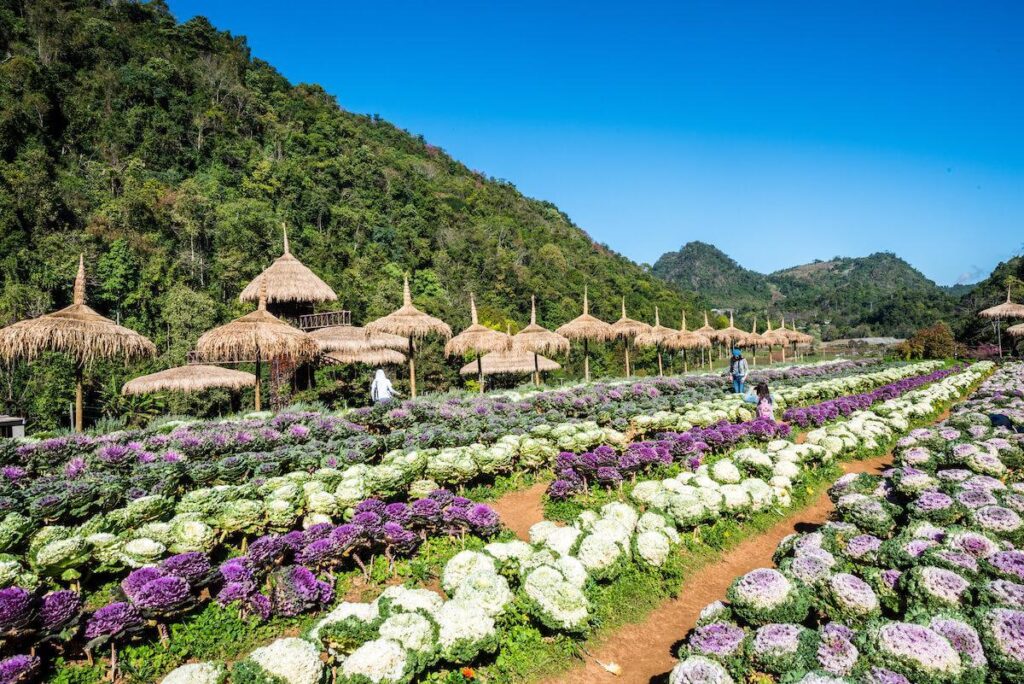
Community Engagement and Empowerment
Supporting Local Communities
The Royal Project places a strong emphasis on supporting local communities, particularly those living in remote and marginalized areas. It aims to empower these communities by providing them with technical assistance, infrastructure development, and income-generation opportunities. By enhancing local capacity and engaging communities in decision-making processes, the project fosters sustainable development at the grassroots level.
Involving Indigenous Groups
Indigenous groups play a vital role in Thailand’s agricultural landscape, as they possess traditional knowledge and practices that are essential for the preservation of biodiversity and sustainable agriculture. The Royal Project recognizes the importance of indigenous groups and actively involves them in its initiatives. This includes supporting indigenous farming practices, facilitating their access to markets, and promoting cultural preservation.
Women’s Participation
The Royal Project empowers women in agriculture by providing them with equal opportunities and resources. It promotes gender equality through training programs, financial support, and leadership opportunities for women farmers. By recognizing and enhancing women’s roles in agriculture, the Royal Project contributes to the overall socio-economic development of rural communities.
Achievements and Impact
Increase in Agricultural Productivity
Since its establishment, the Royal Project has played a significant role in increasing agricultural productivity in Thailand. By introducing improved farming techniques, crop diversification programs, and access to markets, the project has helped farmers achieve higher yields and incomes. This has contributed to poverty alleviation and improved living standards in rural communities.
Enhanced Food Security
Through its focus on crop diversification and sustainable farming practices, the Royal Project has enhanced food security in Thailand. By promoting the cultivation of a wide range of crops, farmers are less vulnerable to crop failures and market fluctuations. This has led to increased availability of nutritious food, both for local consumption and for export.
Socio-economic Development
The Royal Project has also fostered socio-economic development in rural communities. By providing training, education, and financial support to farmers, the project has empowered them to improve their livelihoods and become self-reliant. Increased incomes from agriculture have enabled farmers to invest in education, healthcare, and other essential services, thereby improving their overall quality of life.
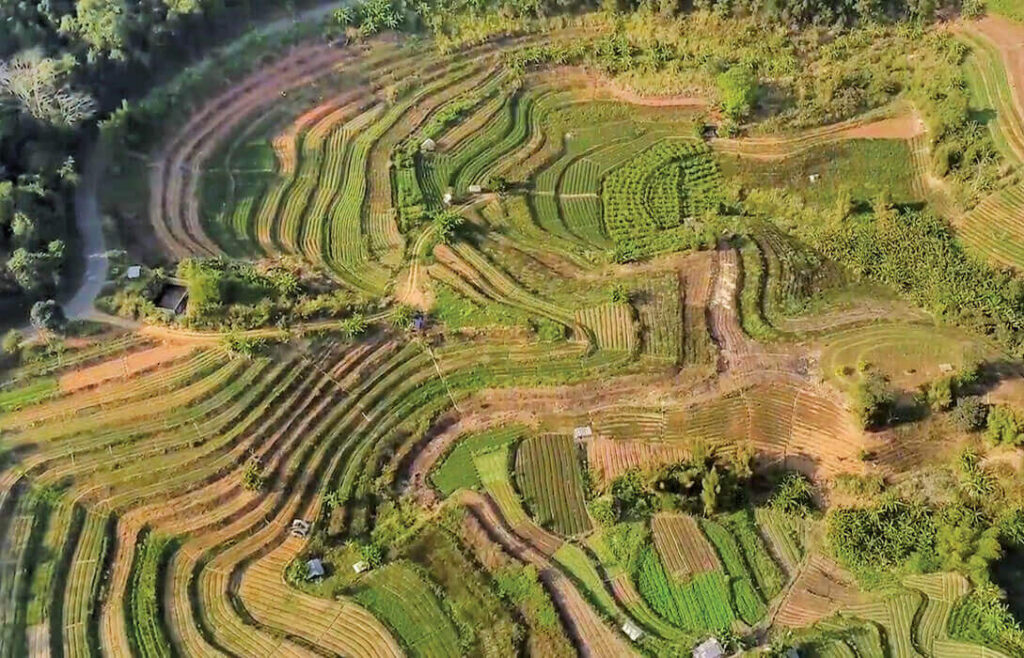
Challenges and Future Directions
Sustainability of the Royal Project
As the Royal Project continues its mission to transform Thailand’s agriculture, ensuring its long-term sustainability is crucial. The project faces challenges such as maintaining funding support, attracting the younger generation to agriculture, and adapting to climate change impacts. To address these challenges, the project needs to foster partnerships with government agencies, research institutions, and private enterprises while continuously adapting its strategies to emerging trends and needs.
Expanding Reach and Impact
While the Royal Project has made significant progress over the years, there is still a need to expand its reach and impact. The project should aim to replicate its successful models and interventions in other parts of the country, particularly in areas facing similar agricultural challenges. This expansion can be achieved through strengthening collaborations, sharing knowledge and best practices, and building the capacity of local communities to implement sustainable farming practices.
Policy and Government Support
To ensure the continued success of the Royal Project, strong policy frameworks and government support are essential. The project requires sustained political commitment, funding, and institutional support to scale up its initiatives and overcome barriers. By integrating the Royal Project’s principles and approaches into national agricultural policies, Thailand can create an enabling environment for sustainable agriculture and support the country’s transition towards a more resilient and inclusive agricultural sector.
Conclusion
The Royal Project of Thailand stands as a remarkable example of how sustainable agriculture practices can drive positive change in rural communities. By addressing agricultural challenges, promoting sustainable practices, diversifying crops, improving farmers’ livelihoods, conserving the environment, and engaging local communities, the project has revolutionized Thailand’s agriculture sector. With its achievements in increasing agricultural productivity, enhancing food security, and contributing to socio-economic development, the Royal Project serves as a model for other countries facing similar challenges. As it continues to navigate future challenges and expand its impact, the Royal Project remains an inspiring force for sustainable agriculture in Thailand and beyond.
